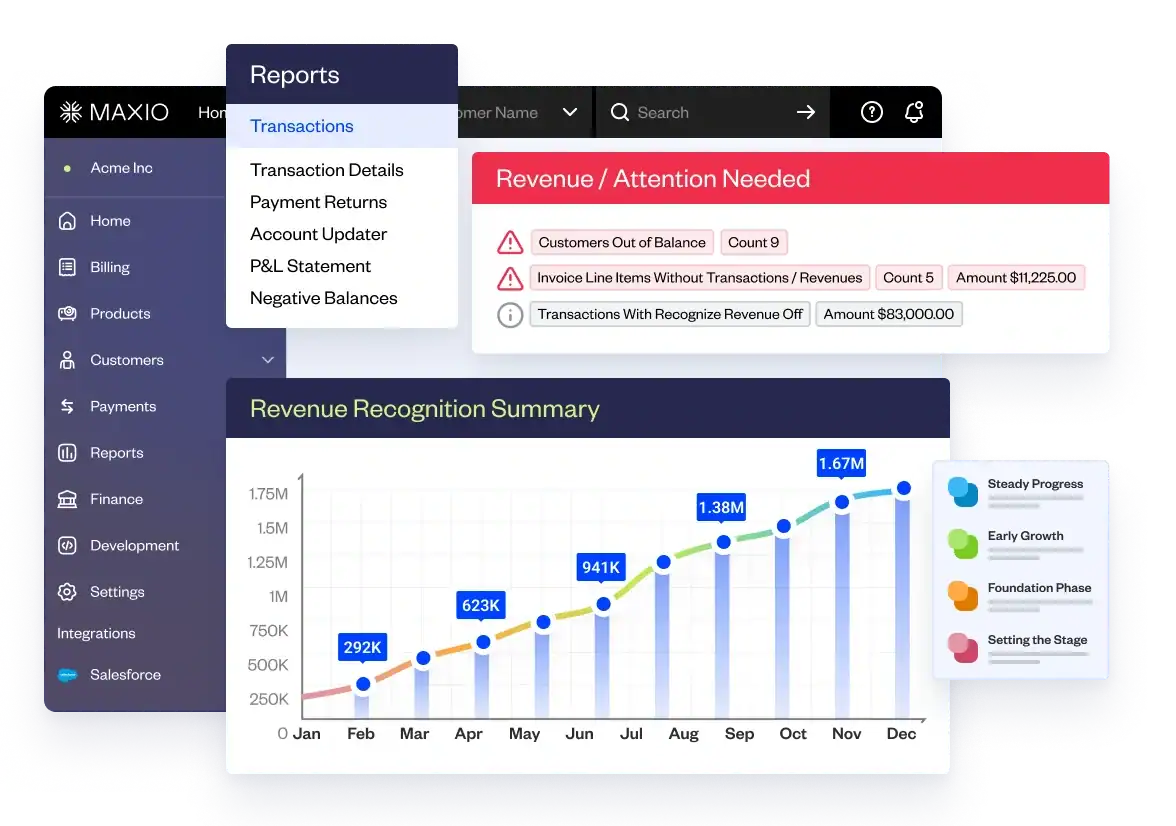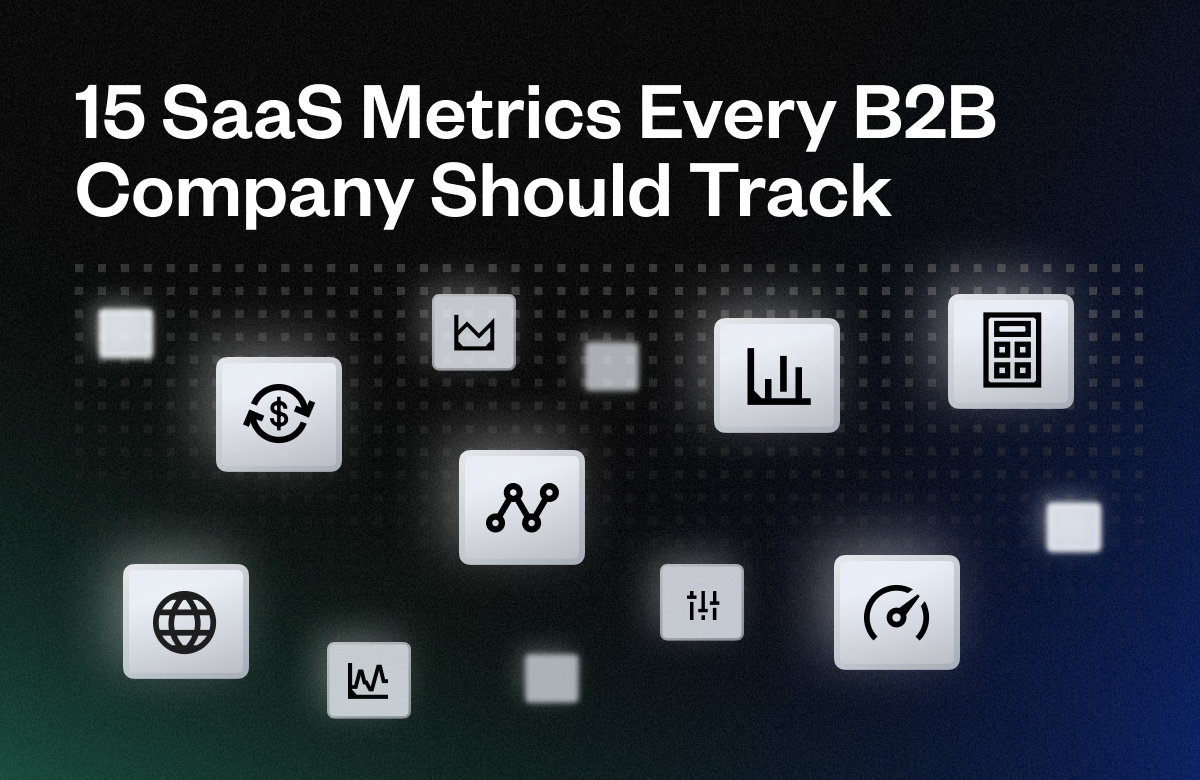Every major growth event at a SaaS company requires the guiding hand of a finance professional.
Considering VC funding? You’ll need verifiable financial reports and reliable metrics to validate your vision. Need to extend your cash runway or reduce burn rates during a market downturn? You’ll need strategic guidance on how to manage your expenses and stay afloat.
Despite the obvious importance of the finance department, not every early-stage SaaS company and startup is ready to invest in a full-time CFO, mid-level controller, or entry-level accountant right off the bat. Fractional financial executives and accounting firms are often hired to fill in the gaps.
But is outsourcing key finance and accounting roles a good long-term business practice? Here’s how you can use outsourced financial services to extend the capabilities of your finance department.
Should you outsource finance and accounting?
Before you decide whether or not outsourcing makes sense for your business, you need to know which services are available to you.
What finance and accounting roles can be outsourced?
According to Chris Morgan, CEO at LBMC, fractional accounting services can range from high-level financial consulting to entry-level bookkeeping. For instance, you could bring on a fractional CFO to consult on specific events that have a long-lasting, company-wide impact (choosing an ERP or preparing for an upcoming valuation). Similarly, you could hire an accounting firm to perform entry-level, transactional accounting activities, such as general accounting, month-end close, and financial accounting.
When should companies look into outsourcing their finance department?
In a conversation with Ian Wright, Managing Director at businessfinancing.co.uk, Wright explained that “fractional services are valuable at any company stage or size because the scope and cost can change alongside the needs of the business.”
However, when asked about specific growth stages, Wright pointed out that “at the point of series A funding, you should definitely be looking to outsource your finance department. At this point, not only will you want to get a better, more detailed outline of your financials in terms of ongoing operations, but naturally, you’re going to need to look into financial models and projections as part of any initial funding rounds.”
Wright’s advice makes perfect sense for Series A companies and beyond, but what if you’re an early-stage company without the funds available to hire a full-time CFO? In this case, hiring a fractional CFO or financial advisor for a short-term strategic engagement is another viable alternative.
Chris Morgan of LBMC (W Squared) also points out that ‘when’ you decide to engage with an outsourced firm it largely depends on your needs. For instance, if you’re preparing to raise a round of capital, you should start an engagement with an outsourced firm at least six to twelve months in advance, so that they have ample time to get the financial house in order and lead due diligence.
“If you’re serious about raising a funding round, for example, you need someone who can provide a sound financial perspective, compile financial reporting, and provide insight on key metrics. If you can’t get through financial due diligence, you’re going to struggle to raise funding, or you’re company will get hammered on the valuation and you may end up giving up more ownership than you had intended” added Chris.
How do you balance full-time employees and outsourced services to manage your finance and accounting?
In Wright’s opinion, a combination of both full-time and outsourced accounting and finance roles is crucial at the initial seed funding stages. This hybrid team setup ensures you’re not hiring where you don’t need to. Instead, you can keep up with your bookkeeping, reporting, and other accounting tasks before bringing financial operations in-house.
The argument against outsourcing: keeping finance in house
Increasing your employee headcount is often seen as a natural progression of growth, but is it actually benefiting your bottom line?
Let’s say you’re leading a high-growth, VC-backed startup that hasn’t yet reached profitability. In this case, hiring a cohort of new accountants and controllers ahead of your revenue goals could invite unnecessary risks into your business.
Still, there are several instances where hiring a full-time employee is non-negotiable.
When to keep your finance and accounting activities in house
“Technically, you can outsource almost any financial service, but that doesn’t mean that you should,” says Duke Heninger, CPA and Founder of CFO Coach. “Many fractional services aren’t needed on a recurring basis.”
In Heninger’s opinion, recurring activities that affect your customer relationships, such as your A/R, should take place in-house. Otherwise, you risk negatively impacting customer relationships through inconsistent collections and dunnings procedures. That being said, Chris Morgan believes that it makes more sense to outsource recurring A/R and A/P, stating that these processes should be handled by whoever is managing most of the transactional accounting work (i.e. quality control). This also enables everyone to operate at their highest and best use.
In summary, if you’re building a finance department from scratch, your first full-time hires will likely be generalists. As you grow, roles that require specific expertise (like a head of FP&A) can be brought into the mix. In the meantime, specialist roles and non-recurring finance and accounting activities can easily be outsourced in the early stages of your SaaS business to avoid hiring ahead of your revenue goals.
What to do when outsourcing isn’t enough
Full-time teams are great for building systems and processes in-house and fractional services are great for filling in gaps, but they both fail to address one big problem: reducing time spent on transactional accounting.
Financial operations software can automate and reduce time spent on recurring finance and accounting activities without multiplying your employee headcount. Heninger agreed that “in many cases, financial leaders and accounting teams are wasting time on tasks that software should be doing instead. It happens all the time. By streamlining bookkeeping, financial reporting, and month-end close via software, finance leaders can bring the accounting function from a ‘cost center’ to a ‘value center.’
Without a financial operations platform to streamline tedious, manual processes, the cost of multiple full-time or outsourced employees will only get steeper and steeper as you scale.
Turn finance and accounting into a “value center”
At the end of the day, an accountant can’t keep the books balanced without an effective order-to-cash process in place. Similarly, a CFO can’t develop a strategic financial roadmap without reliable SaaS KPIs and metrics on hand. Maxio equips high-growth SaaS companies with the tools to do both.
Check out how Maxio is helping finance teams like yours automate their day-to-day workload and eliminate financial headaches for good in our Maxio Buyer’s Guide.






